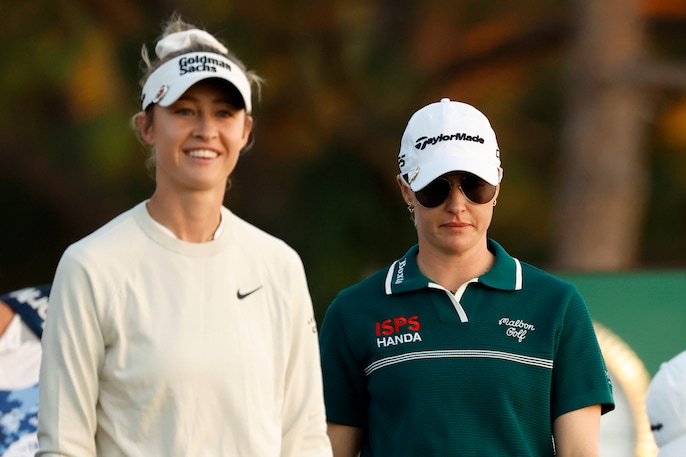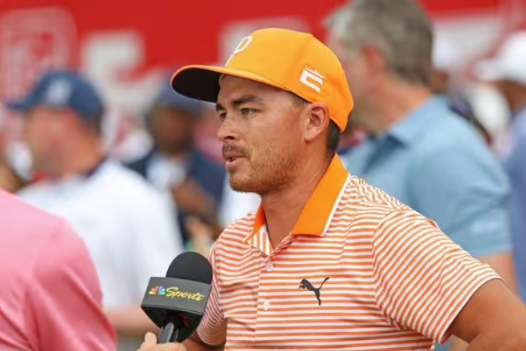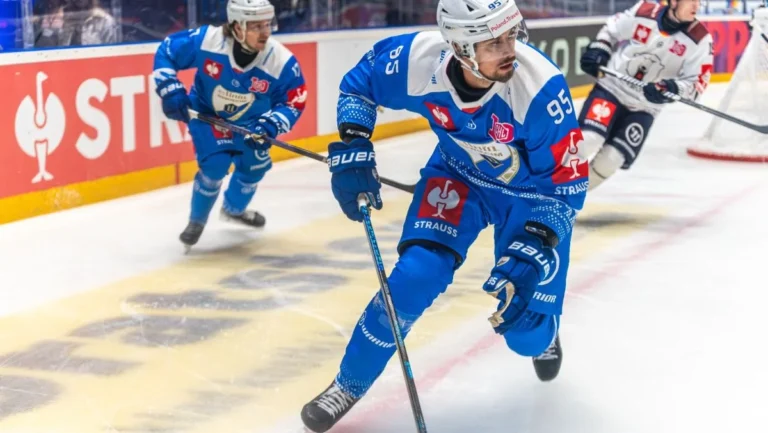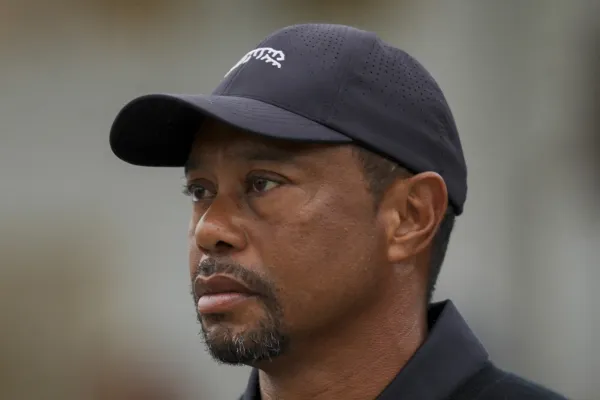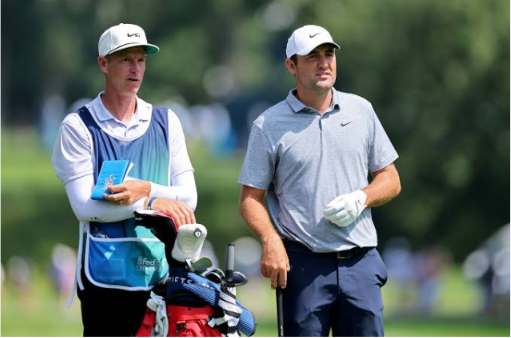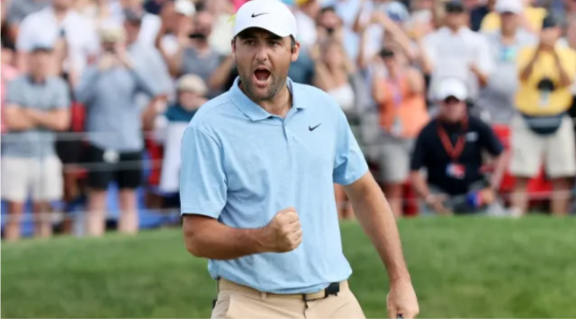Charley Hull comes up with harshest of penalties for ‘ridiculous’ slow players
Charley Hull’s Stand Against Slow Play: A Call to Action for the LPGA Tour Charley Hull, the 28-year-old British golf sensation, has never been one to shy away from voicing her opinions, and after a frustrating weekend at The Annika at Pelican Golf Club, she made sure her voice was heard loud and clear. Although…
Charley Hull’s Stand Against Slow Play: A Call to Action for the LPGA Tour
Charley Hull, the 28-year-old British golf sensation, has never been one to shy away from voicing her opinions, and after a frustrating weekend at The Annika at Pelican Golf Club, she made sure her voice was heard loud and clear. Although Hull finished tied for second in the penultimate event of the 2024 LPGA season, her performance on the course was overshadowed by her growing frustration with the issue of slow play—a problem that has plagued professional golf for years.
For Hull and her playing partner, Nelly Korda, the situation reached a breaking point during Saturday’s third round. Despite clear skies and favorable weather, it took the pair an excruciating five hours and 38 minutes to complete their twosome round. The final hole, played in near-darkness, only underscored the growing problem.
“It’s kind of hard when you don’t really see,” Korda said of the dimly lit 18th hole. “I think it was a little bit of poor planning by starting so late for us. Whenever you’re sitting on 18 and the sun is already down, I mean, it’s never nice.”
The late start on Saturday was a consequence of Friday’s second round running into darkness, delaying the next day’s play and setting off a domino effect for the weekend. But for Hull, the scheduling missteps are only a symptom of a larger problem—one that requires immediate and decisive action.
—
Hull’s Radical Proposal
Never one to mince words, Hull didn’t just vent her frustrations—she offered a bold solution during a post-round press conference.
https://x.com/GolfDigest/status/1858582351824957669
“It’s crazy,” Hull said. “I’m quite ruthless, but I said, ‘Listen, like, if you get three bad timings, every time it’s a two-shot penalty. If you have three of them, you lose your tour card instantly. Go back to Q School.’ Because I’m sure that would hurry a lot of people up, and they wouldn’t want to lose their tour card. That’d kind of kill the slow play, but they’d never do that.”
Hull’s proposed penalties, while severe, highlight the exasperation felt by many players and fans alike. In Hull’s view, slow play doesn’t just affect the competitors—it’s a disservice to the spectators who endure marathon rounds that often stretch well beyond acceptable limits.
“It’s ridiculous,” she continued. “And I feel sorry for the fans. How slow it is out there. We’re out there for … was it five hours and 40 minutes yesterday? We play in a fourball at home on a hard golf course, and we’re around in 3½ hours, 4 hours. So it is pretty crazy.”
—
A Broader Problem
Slow play is not a new issue for the LPGA Tour. The organization has implemented penalties and taken measures to address the problem, but the persistence of marathon rounds—especially in high-profile events like The Annika—suggests that more needs to be done.
Beth Ann Nichols, a senior writer for Golfweek, has proposed a more measured approach. She suggests reducing the size of the tournament field to prevent late rounds from spilling into the evening hours.
“It’s important to provide opportunities for players, but it’s more important to safeguard the quality of the product,” Nichols wrote. “It’s for the greater good.”
Even Annika Sorenstam, the tournament’s namesake and a 10-time major champion, has weighed in on the issue, expressing her concern over the increasingly sluggish pace of play.
“I think the pace has gotten slower and slower, even practice rounds,” Sorenstam said. “It’s gotten to the point where a lot of players don’t even want to play 18, and it shouldn’t be that way. It’s something the tour needs to address.”
—
The Impact of Slow Play
The implications of slow play extend beyond the players’ frustration. Long rounds disrupt television broadcasts, alienate fans, and undermine the overall appeal of the sport. In an era where audiences demand quicker, more engaging entertainment, professional golf risks falling behind if it cannot address these concerns.
Hull’s suggestion of stripping tour cards may be extreme, but her willingness to confront the issue head-on has sparked a broader conversation. Both Korda and PGA Tour star Max Homa shared Hull’s comments on social media, amplifying her message and ensuring that the issue remains in the spotlight.
—
What’s Next for the LPGA Tour?
With only one event left in the 2024 season, the LPGA faces mounting pressure to address the slow play crisis. Whether through Hull’s uncompromising penalties, Nichols’ field-size adjustments, or other measures, it is clear that the status quo is no longer sustainable.
For Hull, the message is simple: the LPGA Tour must act decisively to protect the integrity of the game and the experience of its fans. As she so bluntly put it, “It’s crazy.”
While Hull’s plan to “rip away tour cards” may never become reality, her passion and determination are a reminder of what’s at stake. For the LPGA Tour, the clock is ticking—and not just for its players.
